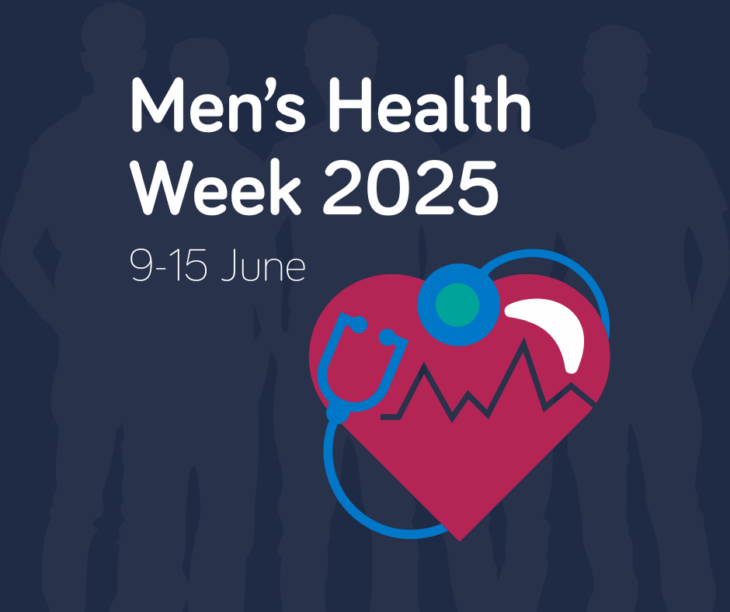It’s time to talk: recognising the importance of Men’s Health Week 2025

All these men have been affected by some serious conditions, such as heart disease, diabetes, cancer, Alzheimer’s, all the way to IBS, broken bones and even the flu. It’s crazy to think that experiencing any symptom from any of the conditions listed would not have a lot of men running to the GP or A&E. Yet, there is still this taboo about men seeking help for warning signs.
It’s the same for our mental health, too. I spoke to my dad around 17 years ago about opening up about our feelings, and neither of us could do it. Cut to now, my dad and I still don’t talk about our feelings and emotions as much as we should, but we do talk about them.
I’m not worried about the stigma attached to ‘men being men’ (what even is that anyway?). I’m worried that my sons will carry this social conformity with them into their adult lives. I encourage my sons to talk to me, even though it is hard to do so. I never push them to, I just encourage them to.
When I think of warning signs, I automatically think of the road traffic signs. I never thought to look for warning signs in my day-to-day routine. I never thought that something that seemed so insignificant at the time could turn into something so monstrous or dangerous.
Around 4 months ago, I found a lump. I never checked for them, and I never heard any other men talking about checking for them. As soon as I felt it, my immediate reaction should’ve been to call my GP and get an appointment booked in.
I didn’t.
It wasn’t until 2 months later when I confided in a female relative and my partner, and they urged me to go and get it checked. Thankfully, it was nothing, but I keep thinking to myself, why did I not go sooner? I was carrying around all that anxiety and stress for 2 months when all it took was a quick phone call, a test, and my results were back within 5 days of me making the initial appointment.
Addiction is another silent issue that often hides behind the mask of ‘being fine’. Whether it’s alcohol, drugs, or gambling, addiction doesn’t always look like what we expect, and it affects far more men than we talk about. As a result of the work I do, I’ve seen many men quietly battle with it, ashamed to admit they needed help, and too proud to ask.
The stigma around addiction is real, but the consequences of ignoring it are far worse. It doesn’t just take a toll on your body, but your mind, your relationships, and every part of your life. Admitting you’re struggling isn’t weakness – it’s strength. Reaching out for support is a step toward healing, and it could save your life or someone else’s. This week, as we talk about men’s health, let’s not forget that addiction is a health issue, not a moral failing.
There’s still such a taboo about men talking. It needs to change, it has to change. I’ve been in a room full of people at some of the happiest occasions one could imagine, and still felt so alone. I don’t remember how I overcame this feeling, but I know I never talked to anyone about it at that time.
I never talked about my physical or mental health to anyone, but now, that’s changed. I urge anyone who notices a lump, a bit of blood, a lasting cough, recurring headaches or even a twinge to go and get it checked out. Go and speak to someone. Don’t suffer in silence, because I guarantee you, if you hold on to it and lock it away, it isn’t just you who you will be hurting.
You are not alone. It is ok not to be ok. Talk.
Spend this week checking yourself, and if you can, check on someone else.